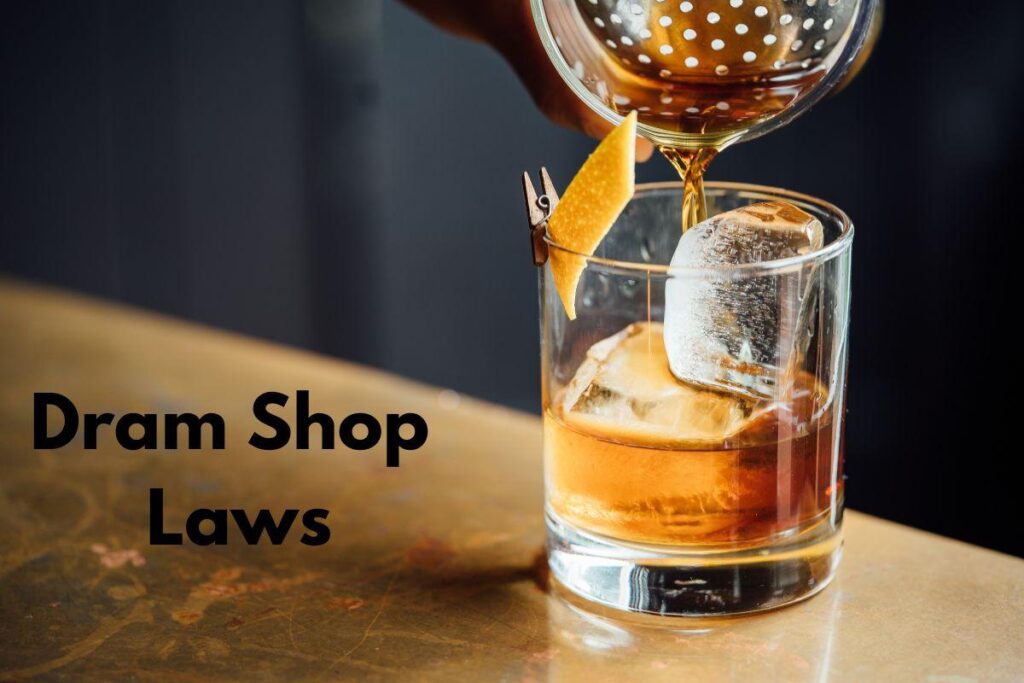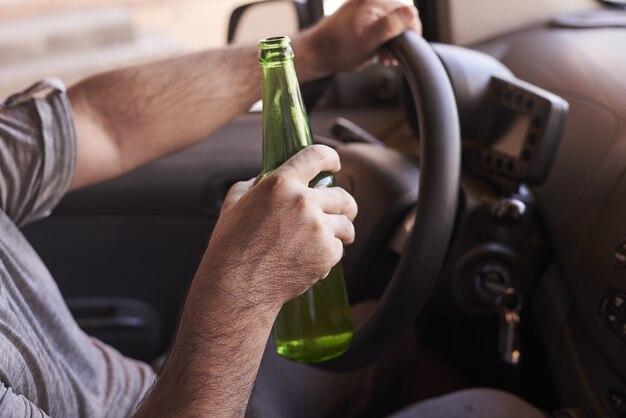Imagine enjoying a night out with friends, only to have it end tragically because of someone’s excessive alcohol consumption. In such situations, dram shop laws can offer a path to seeking compensation for damages. These laws hold businesses, like bars and restaurants that serve alcohol, liable if they overserve a customer who then goes on to cause harm to themselves or others.
Dram shop laws have a long history, dating back to the 18th century, and are a unique legal doctrine that holds businesses accountable for the actions of their intoxicated patrons. While the specifics of these laws vary by state, they all share the common goal of promoting responsible alcohol service and protecting the public from alcohol-related accidents and injuries.
If you’ve been impacted by a situation involving alcohol overservice, we recommend speaking with an attorney to learn more about dram shop liability and your legal options. In the meantime, let’s look deeper into dram shop laws and their implications.

Post Contents
The Liability Framework of Dram Shop Laws
Dram shop laws establish a framework for civil liability, meaning a business can be held financially responsible for damages if they serve alcohol to a patron who then causes harm. This differs from criminal charges, which focus on punishing individuals who break the law.
To win a dram shop case, you’ll typically need to prove several elements:
- Sale or Service of Alcohol: The business must have sold or served alcohol to the intoxicated person.
- Intoxication: The patron who caused the harm must have been noticeably intoxicated at the time of service.
- Over-serving or Serving a Visibly Intoxicated Person: The business must have known or should have known the patron was already intoxicated and yet continued to serve them alcohol. This is often the most contested element.
- Proximate Cause: The intoxication must directly cause the injury or damage. For example, if someone trips and falls after having a drink, it likely wouldn’t qualify under dram shop laws.
It’s important to note that dram shop laws may also consider defenses raised by the business. One common defense is contributory negligence, which means the injured party’s own actions also contributed to the accident. The strength of each element and potential defenses will vary by state.
The Rationale Behind Dram Shop Laws
Dram shop laws aren’t just about assigning blame; they serve important public policy goals. Here are some key objectives:
Discourage Overserving
These laws aim to disincentivize establishments from prioritizing profits over responsible alcohol service by holding businesses accountable for the actions of intoxicated patrons. This encourages bars and restaurants to train staff to identify intoxication and refuse service to overly inebriated customers.
Promote Responsible Practices
Dram shop laws encourage a culture of responsible alcohol service within the hospitality industry. Knowing they could be held liable for damages, businesses are more likely to implement stricter policies around age verification, drink limits, and intervention techniques when dealing with intoxicated patrons.
Compensation for Victims
For victims of drunk driving accidents or other incidents caused by intoxicated individuals, dram shop laws can offer a crucial lifeline. These laws allow them to seek compensation for medical bills, lost wages, and other damages resulting from the incident. This financial support can be critical for victims and their families during a difficult time.

Variations in Dram Shop Laws Across States
While the core principle of holding businesses accountable for overserving alcohol remains consistent, dram shop laws vary significantly across the United States. Here’s a glimpse into some key differences:
- Standards of Liability: Some states follow a strict liability standard, meaning a business is automatically liable if it serves alcohol to a visibly intoxicated person who causes harm. Others follow a negligence-based standard, where the injured party must prove the business acted unreasonably in serving the intoxicated person.
- Scope of Liability: The scope of who can be held liable under dram shop laws also differs. Some states apply these laws to bars and restaurants, while others extend them to liquor stores, social hosts, or even private event venues serving alcohol.
- Damages Recoverable: Limitations on the types and amount of damages recoverable in dram shop cases may exist. Some states cap the total amount of compensation awarded, while others restrict the types of damages, such as punitive damages meant to punish the business.
Real-World Impact of Dram Shop Laws
Dram shop laws have a tangible impact on public safety and responsible alcohol service. For instance, victims of drunk driving accidents have successfully sued bars or restaurants that overserved the intoxicated driver responsible for the crash. These laws also serve as a deterrent, encouraging establishments to be more cautious when serving alcohol.
However, critics argue that dram shop laws place an unfair burden on businesses and may not be a significant factor in reducing drunk driving rates. The effectiveness of these laws likely depends on how strictly they’re enforced and the specific details within each state’s legislation.
The Future of Dram Shop Laws
The future of dram shop laws may focus on strengthening their effectiveness. Potential areas of reform include:
- Expanding Liability: Legislations might extend liability to a wider range of alcohol providers, including social hosts or even ride-sharing services that transport intoxicated individuals.
- Standardization: There could be a push for more uniformity across state lines, creating a clearer national framework for dram shop liability.
- Focus on Technology: With the rise of alcohol delivery services, the legal landscape may need to adapt to address these new modes of alcohol consumption.
Dram shop laws remain critical for promoting responsible alcohol service and protecting the public. As societal norms and alcohol consumption patterns evolve, these laws will likely continue to adapt and play a role in fostering safer communities.